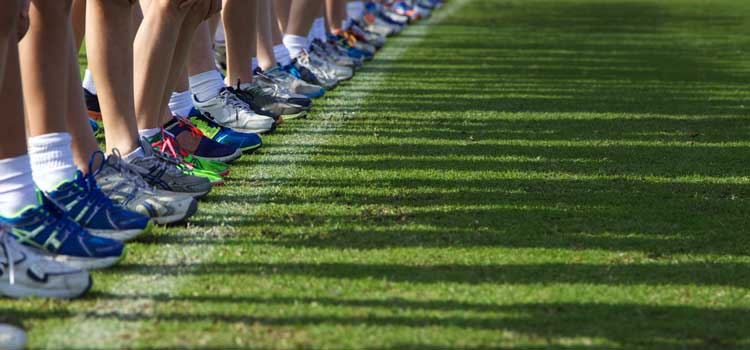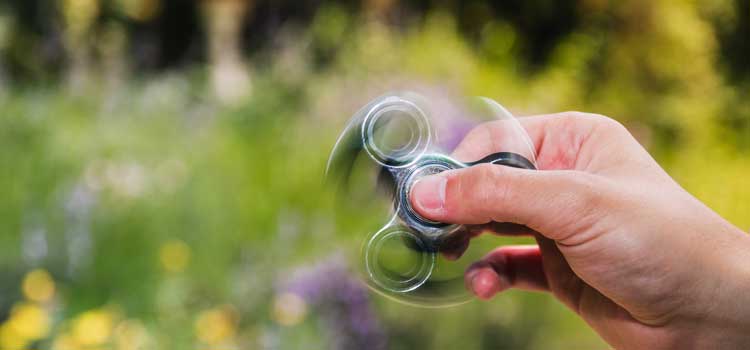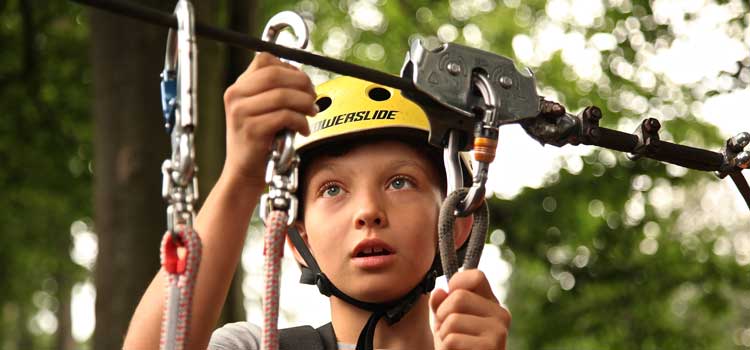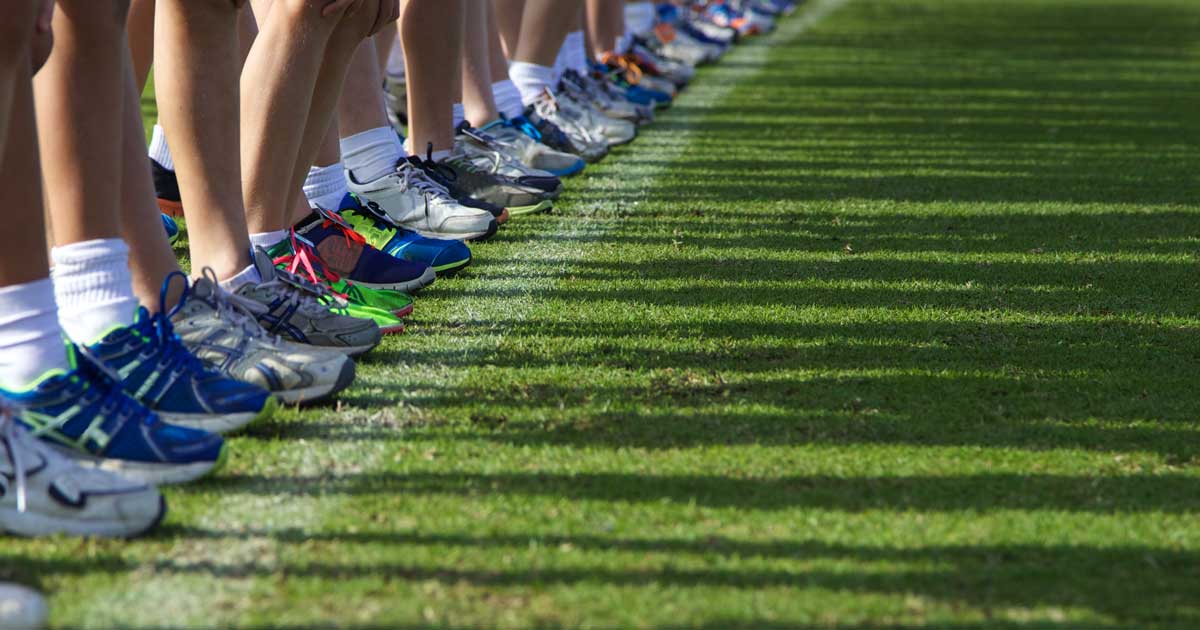As camp directors and counselors, you are some of the most innovative and creative people on the planet. You’re also deeply committed to creating meaningful experiences for as many kids as possible, no matter who they are and what support they need. This includes making adjustments to your summer camp for kids with ADHD. Your experience and grounding in camp culture provide you with a great foundation to make these adjustments, but it never hurts to get a little expert advice.
That’s where Michael McLeod and Kathleen Gurski come in. They both grew up attending and working at camps, they both work with children who have ADHD, and they both agree that summer camp can be one of the best experiences for these kids. Their advice centers on these approaches:
- Add a variety of activity options within a predictable schedule
- Encourage group problem solving and give positive praise
- Let kids move and fidget and simplify instructions
- Learn what works, and what success looks like, for each individual camper
Kathleen (aka Quack Quack) runs Camp Amicus and is the manager of Amicus, Camps and Recreation Programs, summer camp programs designed specifically for children and youth with Learning Disabilities and/or ADHD. She is on the boards of the Alberta Camping Association and the Canadian Camping Association and has been working in camping for 20 years. When it comes to her work at camp with kids who have ADHD, she looks beyond the summer. “We’re looking at the long term trajectory for these children and what we can do now to build a strong foundation.”
Michael is the owner of GrowNOW Therapy in Philadelphia and is a licensed speech and language pathologist who has been working with children and adolescents for more than 15 years. He specializes in ADHD and on building positive and motivating self-talk to help build independence. He says that camp is one of the best environments that a child with ADHD can experience, because “camp is an opportunity to have varied experiences and build new meaningful relationships.”
Michael and Kathleen want camp leaders to know that there are small and easy adjustments you can make to create positive experiences at summer camp for kids with ADHD.
Provide variety within predictable schedules for kids with ADHD

According to Kathleen, one important approach at summer camp for kids with ADHD is balancing consistency and variety. At her camp, they create predictability with a scheduled sequence of events that is always the same. Then within that schedule, they add variety. They build choice blocks into a consistent schedule, so campers know they can do different things. “It’s the schedule of consistent timing and activity blocks day to day, week to week, and year to year. Then, knowing within that schedule they will have a choice of programs, and the programs will be different and exciting.”
Michael’s advice echoes this approach. Kids with ADHD thrive with structure, he explains, which works well for school days when they follow a routine. Camps, he says, “have a great opportunity to really push these kids out of their comfort zones and to try new things.” He adds that for kids with ADHD, sometimes it can be hard to come up with the activity ideas on their own. Camp staff can help this by giving them a few options to choose from during an open block of time.
Plan group activities and and give positive praise
Michael explains that there’s a lot of research pushing for project-based learning, and how it’s more effective than traditional lecture-based education for kids with ADHD. Camps are well-positioned to offer these opportunities via group activities that allow campers to work in teams and problem solve together.
A perfect example of this, according to Kathleen, is what she and her camp community call Cardio Pictionary.
- Campers are divided into small groups, and each group is given the same list of words, posted on a piece of paper a short distance from the group.
- One at a time, campers run up to the list, identify their word, run back to their group, and draw clues in Pictionary style.
- Once the group guesses the word, the next camper runs to the list, finds the next word, and runs back.
- The goal is to get through the list the fastest. In the end, each team is celebrated for the number of words they were able to guess, so even those that didn’t win still get that positive praise.
Kathleen explains that Cardio Pictionary is perfect for summer camp for kids with ADHD because it helps give them both personal and team success. This is key, according to Michael. “ADHD kids thrive off of positive praise,” he says, “because they’re always telling themselves they’re not good at things and they get a lot of negative feedback.”
Simplify activity instructions and let kids fidget

Kathleen explains that two things we often expect from kids are to sit down and to make eye contact. The assumption is that if campers aren’t sitting still or making eye contact, they’re not listening. This is not true of kids with ADHD, who can be more attuned to what counselors are saying if they can move and fidget.
Michael adds that it’s important to get campers with ADHD up and moving around, even doing something as simple as walking the perimeter of the field or room during an activity.
At her camp, Kathleen begins each session with craft projects that are fun and that double as helpful tools for supporting ADHD campers’ need to fidget and move around. Her campers make stress balls by filling balloons with flour or rice, they make sensory bottles with test tubes, water, glue, food dye, and glitter, and they use wire and beads to make fidget tools in fun shapes.
Counselors can make sure that campers have these objects with them at all times, which gives them a sense of ownership and makes the object even more impactful. Counselors can also have additional objects with them as tools campers can borrow as needed.
When it comes to these and all activities at summer camp for kids with ADHD, Michael explains that the more language you use, the less likely campers with ADHD are to hold onto the information. This is especially true when it comes to activity instructions.
Two tips he offers are to use less language or simpler directions, and to encourage campers to create mental images of what it will look like when they complete or succeed at an activity. Assuming you have parental permission, Michael suggests that counselors take photos of campers being successful at activities, and then use those photos later as visual encouragement and reminders of their ability to challenge themselves and succeed.
Kathleen adds that any opportunity to make instructions visible will help, even something as simple as printing out schedules, game rules, or lists of what campers need for activities, and posting them around camp. She suggests having additional copies in high-traffic areas, as well as with camp staff.
Give individualized attention and measure success in different ways
Michael wants camp leaders to understand that simply knowing that a child has ADHD is not enough. Counselors must get to know each camper with ADHD as an individual. Kathleen echoes the importance of meeting each kid where they’re at, and recognizing that one type of encouragement that works for a specific camper with ADHD, might not work the same for the others.
Michael encourages you to ask parents before camp not just about their child’s diagnosis, but also what activities they like to do. Kathleen adds that you can identify existing positive relationships either with staff or with other campers, and make sure campers with ADHD can spend time with these people, so they have a feeling of safety.
One note from Michael is that it’s always important to monitor these pairings and make sure that they are creating a positive dynamic and working out for both campers. Make sure the supporting camper is being patient with the kid with ADHD, and have counselors judge how pairings are working based on their understanding of camp culture.
Adults at camp, Kathleen adds, need to model their own ability to regulate. When staff get frustrated, they can simply say how they’re feeling and explain that they’re going to take a few minutes away from the group to get a breather before coming back. This can serve as a helpful visual model for campers with ADHD and normalize the range of emotions that every camper has.
Measuring success in different ways for campers with ADHD is also helpful. Michael suggests starting with something easier and building up. “If you’re doing a five mile hike,” he says, “you might want to stop and say, ok, we did one mile, and give positive praise there.” Kathleeen adds to not think about success simply if they’re doing the activity that you are doing. “Success for kids with ADHD is not that they climbed the wall, or made a craft. If they liked their counselor or made one friend, call it a win.”
Camp for kids with ADHD is so important

Michael says that most recent research on ADHD is not focused as much on inattentiveness and hyperactivity. “We’re really focused on executive functioning development delay,” he says, “what we see with a lot of individuals with ADHD is they don’t have the independent skills to self-regulate and to self-motivate.” He says that kids with ADHD need varied experiences and meaningful relationships, and very few places can offer those better than a camp.
Kathleen recommends Zones of Regulation as a great resource for camps, but emphasizes that camp leaders and counselors should not try to take the place of certified professionals. “You are not trying to overhaul the child’s life and make gains on the same level of a full-time professional,” she says, “your goal is to create positive experiences and integrate simple tools to support your campers.” Michael adds that while camps may not have the resources that schools do, camps can create individualized plans that work wonders for campers with ADHD.
Kids with ADHD can be described as, “quick to anger,” “emotionally sensitive,” or “over-reactive,” Kathleen explains. She says that we often hear that their reactions don’t seem to fit the situation. The goal should be to provide a safe, consistent, and nurturing environment where these campers can trust the adults around them, where taking perspective is promoted, and where they are comforted when they struggle—all things camps do inherently.
Whether it’s a one-week camp, an arts camp, or an overnight camp, Kathleen says there’s nothing she loves more than, “bringing in the folks who people don’t typically think of being at camp, and letting them have an authentic camp experience.” Michael agrees, adding, “I think having these ADHD campers experience camp and try different things creates lifelong growth.”
